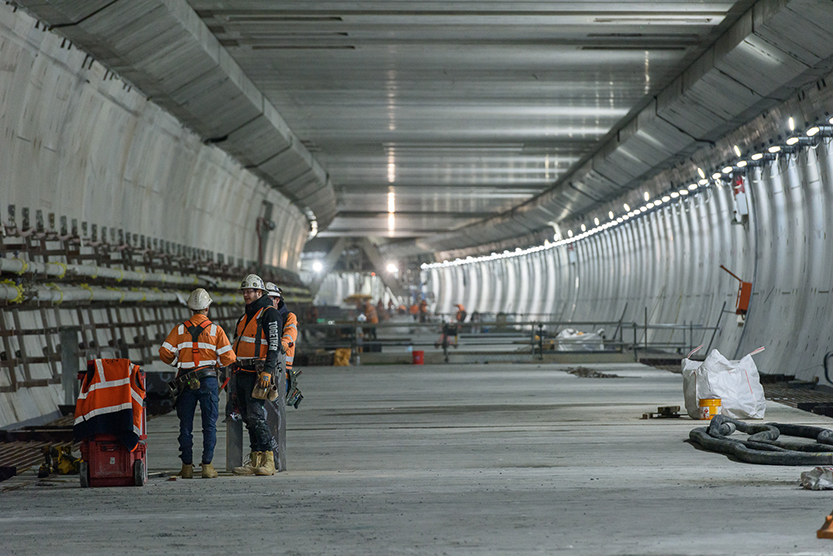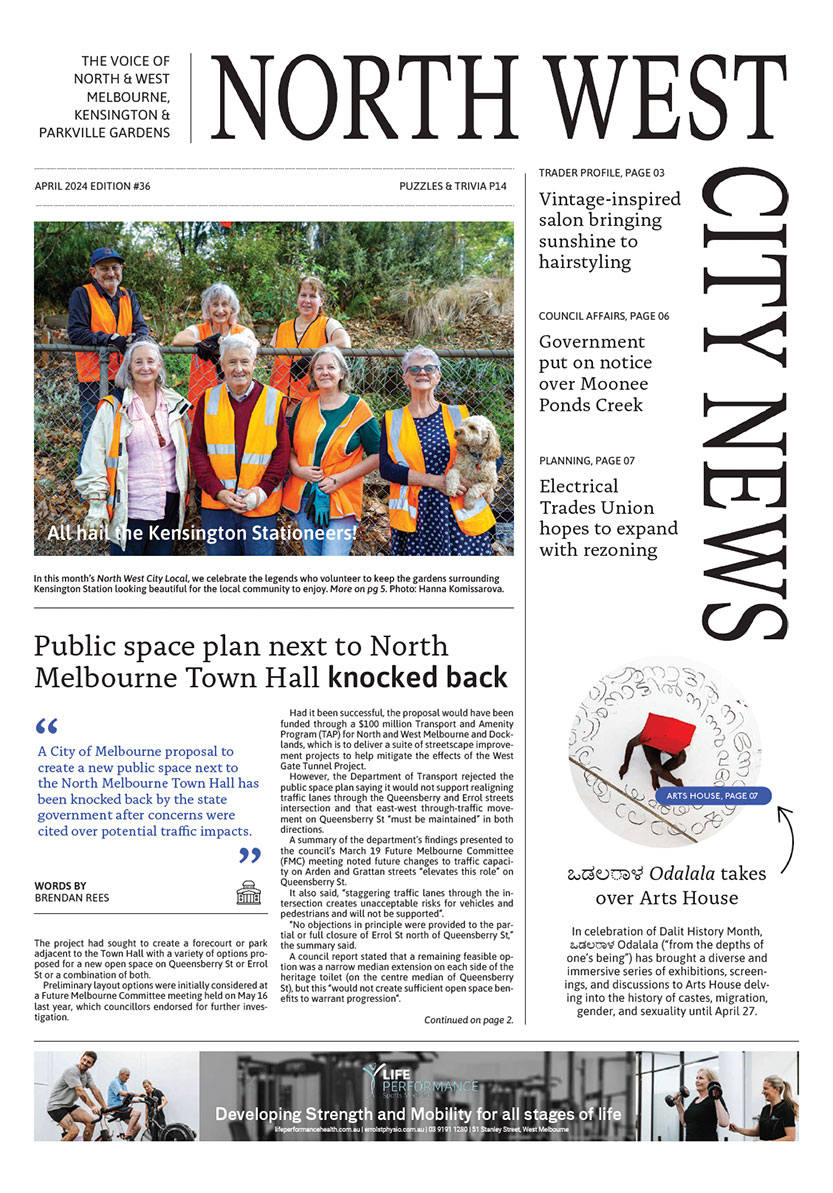West Gate Tunnel construction more than “70 per cent” complete
The Victorian Government has announced the heavily interrupted construction of the West Gate Tunnel is now more than 70 per cent complete, after beginning in early 2018 and now projected to finish in late 2025, three years later than originally proposed.
According to the state government 4.5 kilometres of “road deck” has been installed in both twin tunnels, and the removal of the two tunnel-drilling machines is under way as construction of the tunnel’s entries and exits begins.
The project has been cursed by delays due to disputes over the disposal of contaminated soil, and an underground collapse in June. Serious controversy also surrounds the expense of the project, with the original cost of $5.5 billion now nearly doubled.
The project aims to decongest travel through Melbourne’s western suburbs, removing “thousands” of trucks from local roads, with each tunnel providing for three lanes of traffic between the West Gate Freeway and the Maribyrnong River.
Minister for Transport and Infrastructure Jacinta Allan joined workers on the project to travel the drivable length of the tunnel for the very first time in August, marking a significant milestone for the project.
Minister Allan said the tunnel “will slash travel times, take more than 9000 trucks off local roads, and get families home safer and sooner.”
“This is the biggest tunnel project Australia has ever seen – we thank the thousands of Victorians who have worked around the clock to get us closer to the finish line on a project that will transform our transport network,” Minister Allan said.
“We thank the community for their patience and understanding while we get on with this important work to significantly improve Victoria’s transport network.”

Speaking to North West City News, director of RMIT University’s Centre for Urban Research Professor Jago Dodson agreed reduced trucks will be beneficial for local streets, however he again questioned the cost of the project.
Professor Dodson also highlighted potential competition between the road and rail networks in a city striving for greener approaches to transport and travel. While the project includes creating 14 kilometres of new and upgraded walking and cycling paths, Professor Dodson said the issue of car-centric planning was still of concern.
“We have a long-term intention in Melbourne to reduce the level of travel by automobile, and to encourage more public transport use as well as walking and cycling,” Professor Dodson told North West City News.
“By competing with the adjacent railway network there’s a risk that the West Gate tunnel perpetuates car dependence in the city.” •

Jo Ryan unveils Ordered Chaos at Blender Studios





 Download the Latest Edition
Download the Latest Edition